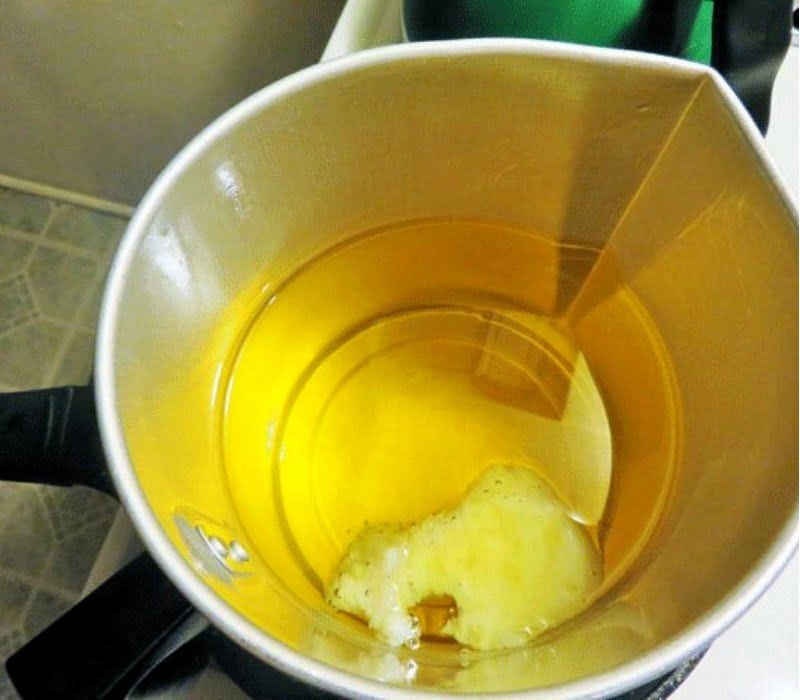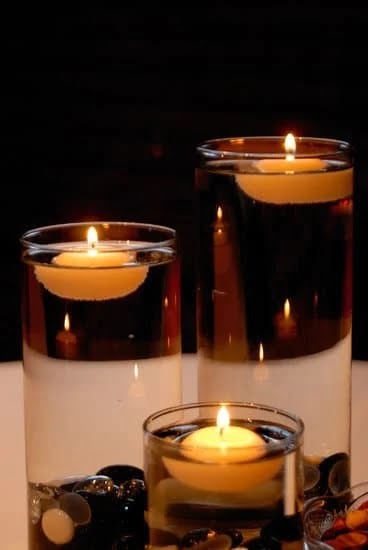Are you considering making your own candles using essential oils? It’s important to understand which essential oils are safe and appropriate to use in candle making. In this article, we’ll explore the importance of using the right essential oils, the potential risks and health concerns associated with using the wrong ones, and provide tips and guidelines for selecting essential oils for candle making.
When it comes to creating your own candles with essential oils, it’s crucial to be aware of what essential oils shouldn’t be used in candle making. While essential oils are known for their aromatic and therapeutic properties, not all of them are suitable for use in candle making due to their chemical composition.
Using the wrong essential oils in candle making can lead to unwanted chemical reactions that may compromise the quality and safety of your candles. In some cases, inappropriate essential oils can even pose health risks when burned, releasing potentially harmful substances into the air. To ensure that you’re crafting safe and high-quality candles, it’s important to be mindful of which essential oils to avoid in candle making.
The Importance of Using the Right Essential Oils in Candle Making
When making candles with essential oils, it is crucial to use the right types of oils to ensure safety and quality. Using inappropriate essential oils can lead to chemical reactions that could pose potential risks and health concerns. It is important to know which essential oils should be avoided in candle making to prevent these issues.
One of the essential oils that should not be used in candle making is lemon essential oil. Lemon oil has a low flashpoint, meaning it can catch fire easily when exposed to high heat. This can result in hazardous situations and should be avoided in candle making altogether. Another essential oil to avoid is eucalyptus oil, as it can produce harmful chemicals when burned, leading to respiratory issues when inhaled.
It is also recommended to steer clear of cinnamon essential oil due to its potential for skin irritation and allergies when used in candles. These are just a few examples of essential oils that shouldn’t be used in candle making, but there are others that should also be avoided. It’s important for candle makers to research and understand the properties of each essential oil before incorporating them into their products.
| Essential Oil | Reason for Avoiding |
|---|---|
| Lemon | Low flashpoint, fire hazard |
| Eucalyptus | Produces harmful chemicals when burned |
| Cinnamon | Potential for skin irritation and allergies |
Essential Oils to Avoid in Candle Making
When it comes to making homemade candles with essential oils, it is important to choose the right oils to ensure safety and the desired fragrance. While many essential oils are suitable for candle making, there are some that should be avoided due to potential risks and adverse effects. Here are some essential oils that should not be used in candle making:
- Citrus Oils: These oils, such as lemon, lime, and bergamot, contain compounds that can react with the heat of the candle flame and cause a potential fire hazard.
- Pine or Fir Oils: These oils can release harmful fumes when burned, posing a risk to respiratory health.
- Eucalyptus Oil: When heated, eucalyptus oil can emit a strong and potentially overpowering scent that may cause discomfort or irritation to individuals with sensitivities.
It is crucial to be mindful of the potential consequences of using inappropriate essential oils in candle making. Certain chemical reactions caused by these oils when heated can lead to unsafe conditions and health concerns. For example, some essential oils may produce soot or smoke when burned, which can contaminate the air and cause respiratory issues if inhaled.
In order to prioritize safety and well-being, it is essential for candle makers to research and understand which essential oils are not suitable for use in candles. By being knowledgeable about the potential risks associated with certain oils, individuals can make informed decisions about what products to create and use in their homes.
Chemical Reactions Caused by Inappropriate Essential Oils in Candle Making
Essential oils are a popular choice for adding fragrance to candles, but it’s important to use the right ones to avoid potential issues. When inappropriate essential oils are used in candle making, chemical reactions can occur that affect the quality and safety of the final product. To ensure a successful and safe candle-making experience, it’s crucial to understand which essential oils should be avoided.
Some essential oils contain components that can react with the wax or other ingredients in candles, leading to unwanted effects such as discoloration, reduced scent throw, or even potential safety hazards. It’s important for candle makers to be aware of these problematic essential oils and take steps to avoid using them in their products.
What are some essential oils that shouldn’t be used in candle making? Here are a few examples:
- Lemon oil: It contains phototoxic compounds that can cause skin sensitivity and irritation when exposed to sunlight.
- Eucalyptus oil: Its high levels of 1,8-cineole can lead to excessive smoking and sooting when burned.
- Cinnamon oil: This oil is known for its potential to cause skin irritation and allergic reactions, especially when used in high concentrations in candles.
By being mindful of the essential oils that should not be used in candle making, crafters can create safer products for themselves and their customers. It’s important to always research and educate oneself on the properties of each essential oil before incorporating them into candle recipes.
Potential Risks and Health Concerns Associated With Using Wrong Essential Oils in Candles
When it comes to making candles with essential oils, it is crucial to prioritize safety and health. Certain essential oils should be avoided in candle making due to potential risks and health concerns. For example, essential oils that are known to have a low flashpoint, such as citrus oils like lemon or orange, should not be used in candle making as they can be flammable and pose a fire hazard when heated.
Another important consideration is the potential for allergic reactions or respiratory issues when using certain essential oils in candles. Oils such as cinnamon or clove can be irritating to the skin and respiratory system, leading to discomfort or even more serious health issues for individuals with sensitivities or allergies. It is essential to carefully research and understand the potential risks associated with each essential oil before incorporating it into candle making.
In addition, using the wrong essential oils in candle making can result in an unpleasant smell when burned, creating an undesirable experience for users. Some oils may emit toxic fumes when heated, which can be harmful if inhaled. It is important to prioritize the safety and well-being of individuals who will be using the candles by choosing appropriate essential oils for candle making.
| Potential Risks | Health Concerns |
|---|---|
| Flammability | Allergic Reactions |
| Toxic Fumes | Irritation |
| Undesirable Smell | Respiratory Issues |
Safe and Recommended Essential Oils for Candle Making
When it comes to making candles with essential oils, it is crucial to choose the right oils to ensure safety and a pleasant aroma. The use of safe and recommended essential oils can enhance the overall candle-making experience and prevent potential health risks. Here are some key factors to consider when selecting essential oils for candle making.
Factors to Consider When Selecting Essential Oils
When choosing essential oils for candle making, it is important to consider the purity, quality, and source of the oil. Look for high-quality, pure essential oils that are specifically labeled for aromatherapy or candle making. Additionally, consider the aroma and strength of the oil, as some scents may be overpowering when used in candles. It is also important to consider any potential sensitivities or allergies of individuals who may be exposed to the candles.
Safe and Recommended Essential Oils
Some safe and recommended essential oils for candle making include lavender, lemon, eucalyptus, peppermint, and sweet orange. These oils not only offer pleasant scents but also possess potential therapeutic benefits when diffused in the air. Additionally, these oils are less likely to cause adverse reactions or chemical changes when used in candles.
Benefits of Using Safe Essential Oils
Using safe and recommended essential oils in candle making can provide a variety of benefits. These benefits include creating a soothing atmosphere, promoting relaxation, improving focus and concentration, uplifting moods, and masking unwanted odors. By using safe essential oils in candles, you can enjoy their aromatic properties while ensuring a positive and enjoyable experience for yourself and others.
Choosing the Right Essential Oils for Candle Making
plays a significant role in ensuring safety and enhancing the overall candle-making experience. It is important to prioritize using safe and recommended essential oils to avoid potential risks associated with inappropriate oils. Therefore, carefully considering factors such as purity, quality, aroma, and source can help you select the best essential oils for your candle-making projects.
Tips and Guidelines for Selecting Essential Oils for Candle Making
When it comes to selecting essential oils for candle making, there are a few important tips and guidelines to keep in mind. By following these recommendations, you can ensure that the essential oils you use will not only create a pleasant fragrance but also be safe for use in candles.
Consider the Flash Point
One important factor to consider when selecting essential oils for candle making is the flash point of the oil. The flash point is the temperature at which the oil will ignite if exposed to an open flame.
It’s crucial to choose essential oils with a high enough flash point to safely be used in candles. Oils with a low flash point could create a fire hazard, so it’s important to research and select oils with a higher flash point for candle making.
Research Potential Chemical Reactions
Before incorporating any essential oil into your candle making process, it’s essential to research potential chemical reactions that could occur when the oil is heated. Some essential oils may produce harmful by-products or release toxins when burned, posing health risks to those inhaling the fumes. By thoroughly researching each essential oil and its properties, you can ensure that only safe options are chosen for candle making.
Seek Recommendations From Trusted Sources
When in doubt about which essential oils are suitable for candle making, seek recommendations from trusted sources such as aromatherapists, experienced candle makers, or reputable websites specializing in aromatherapy. These sources can provide valuable guidance on which essential oils are safe and appropriate for use in candles, helping you make informed choices and avoid using oils that shouldn’t be used in candle making.
Conclusion and Final Thoughts
In conclusion, it is crucial to be mindful of the essential oils used in candle making to avoid potential risks and health concerns. The chemical reactions caused by inappropriate essential oils can lead to harmful emissions and compromise the quality of the candles. It is important to note that certain essential oils should not be used in candle making due to their tendency to produce toxic fumes when heated.
When selecting essential oils for candle making, it is advisable to stick to safe and recommended options such as lavender, citrus, or peppermint. These essential oils not only provide pleasant scents but also ensure a safe and enjoyable burning experience. By following tips and guidelines for selecting essential oils, candle makers can create high-quality products without compromising the health and safety of consumers.
In essence, the key takeaway is that careful consideration should be given to the choice of essential oils in candle making. Being aware of what essential oils shouldn’t be used in candle making will result in better quality candles that are both aromatic and safe for use. Ultimately, prioritizing the use of appropriate essential oils will lead to a positive experience for both candle makers and users alike.
Frequently Asked Questions
Why You Shouldn’t Use Essential Oils in Candles?
Essential oils should not be used in candles because when burned, they can release harmful compounds into the air. These compounds can pose health risks when inhaled, especially for people with respiratory issues or sensitivities. Additionally, essential oils are not designed to be burned and may not react well with the heat of a candle flame.
What Essential Oils Are Toxic When Burned in a Candle?
Some essential oils that are toxic when burned in a candle include eucalyptus, clove, and cinnamon. When these oils are heated, they can produce toxic byproducts such as formaldehyde and acetaldehyde, which can cause irritation to the respiratory system and other health issues.
What Essential Oils Are Safe to Put in Candles?
Lavender, chamomile, and citrus essential oils are generally considered safe to put in candles when used in appropriate amounts. These oils tend to have milder properties and are less likely to produce harmful byproducts when burned. It’s important to use high-quality essential oils specifically formulated for candle-making to ensure safety and optimal scent diffusion.

Welcome to my candle making blog! In this blog, I will be sharing my tips and tricks for making candles. I will also be sharing some of my favorite recipes.





